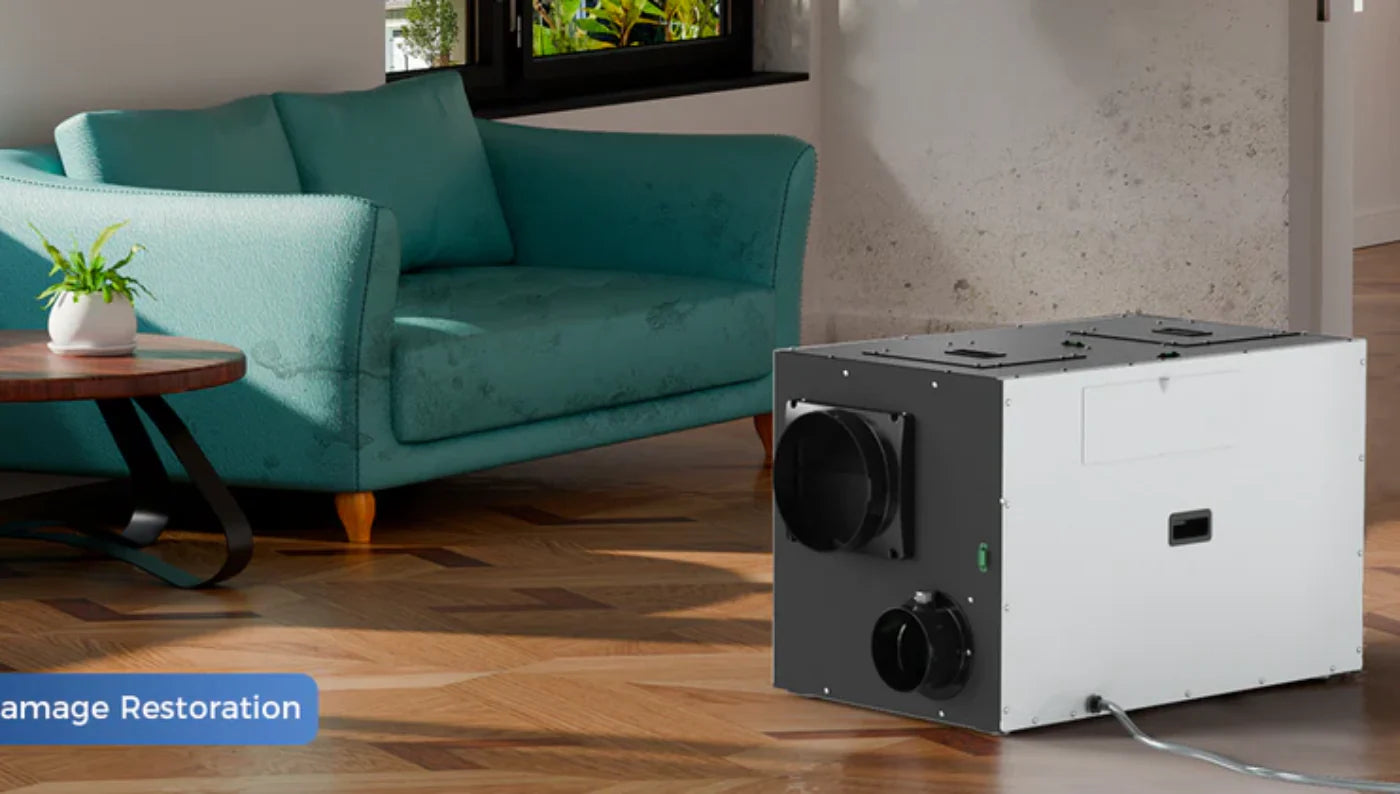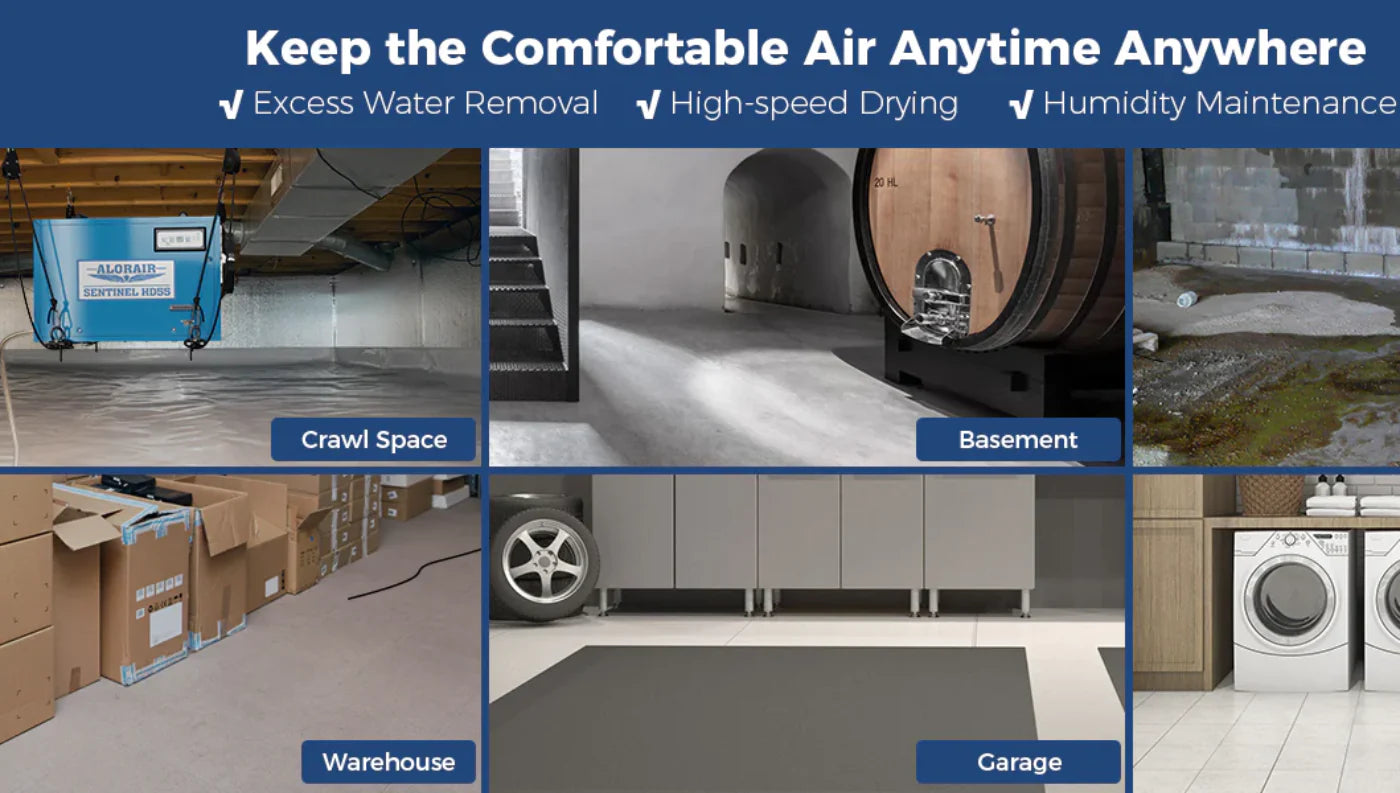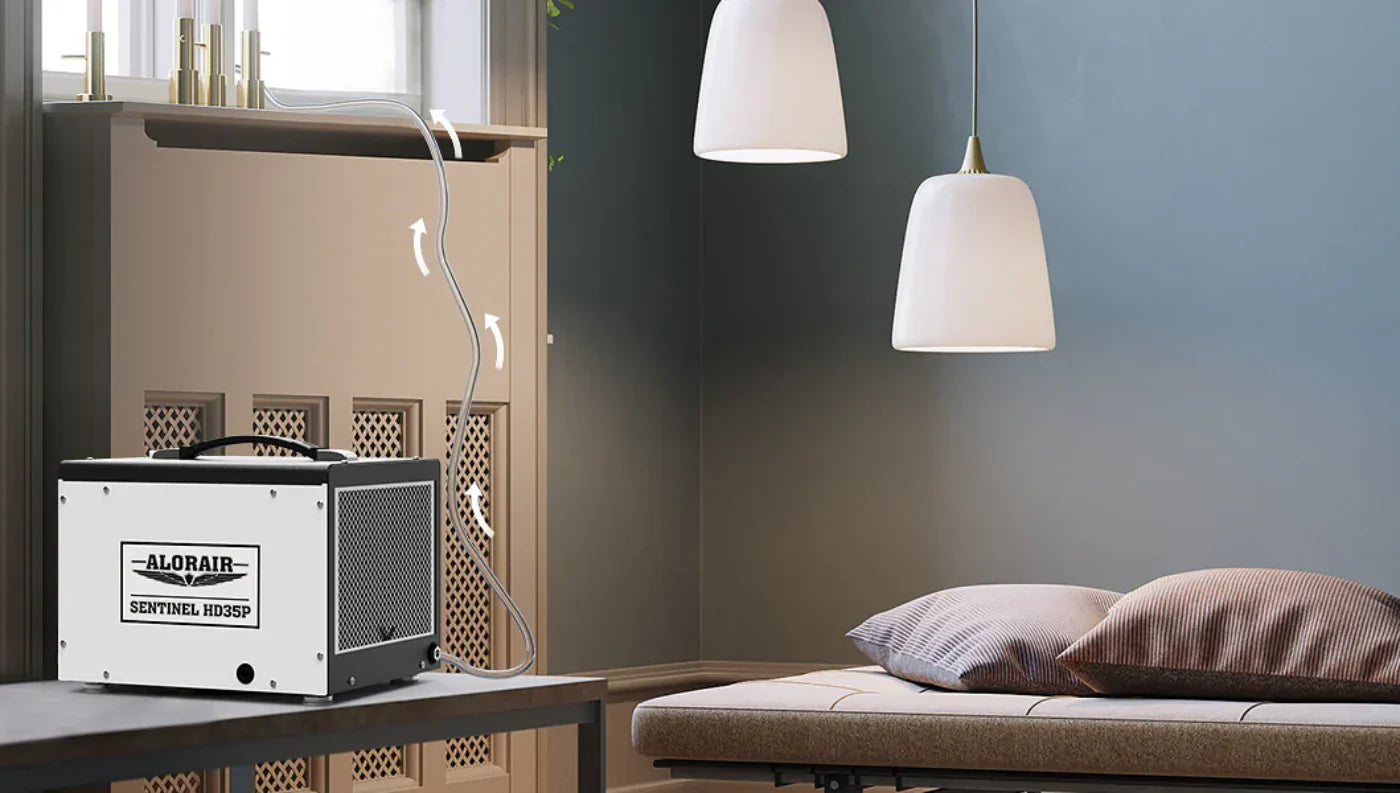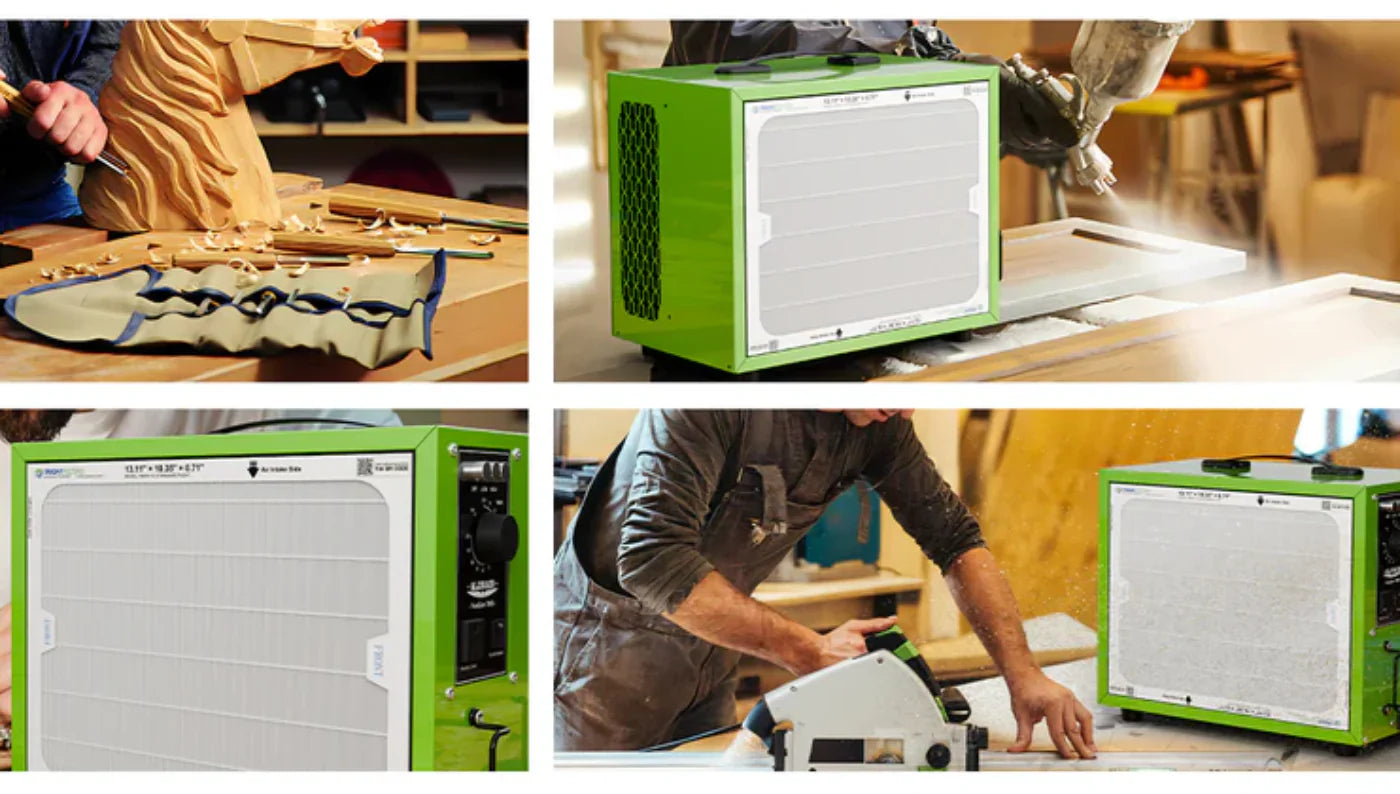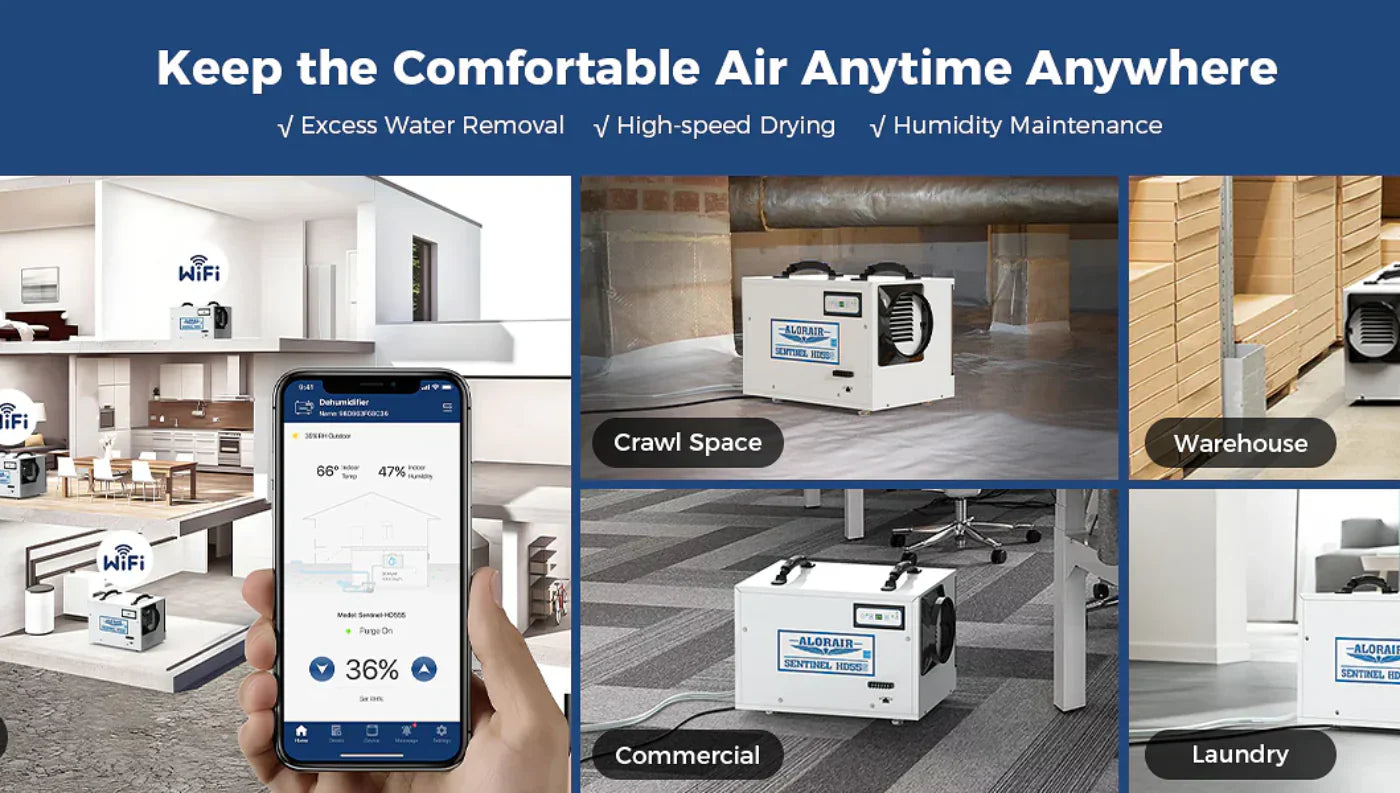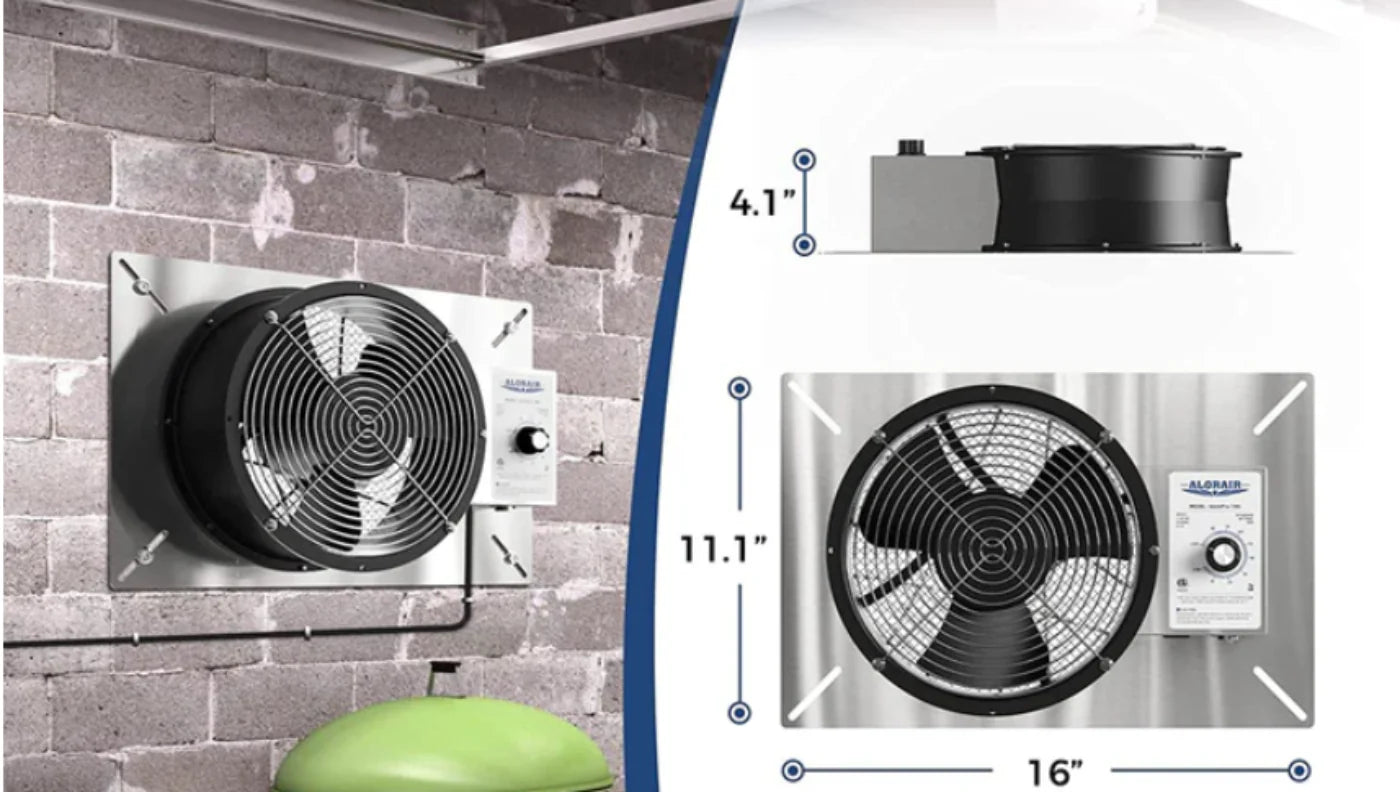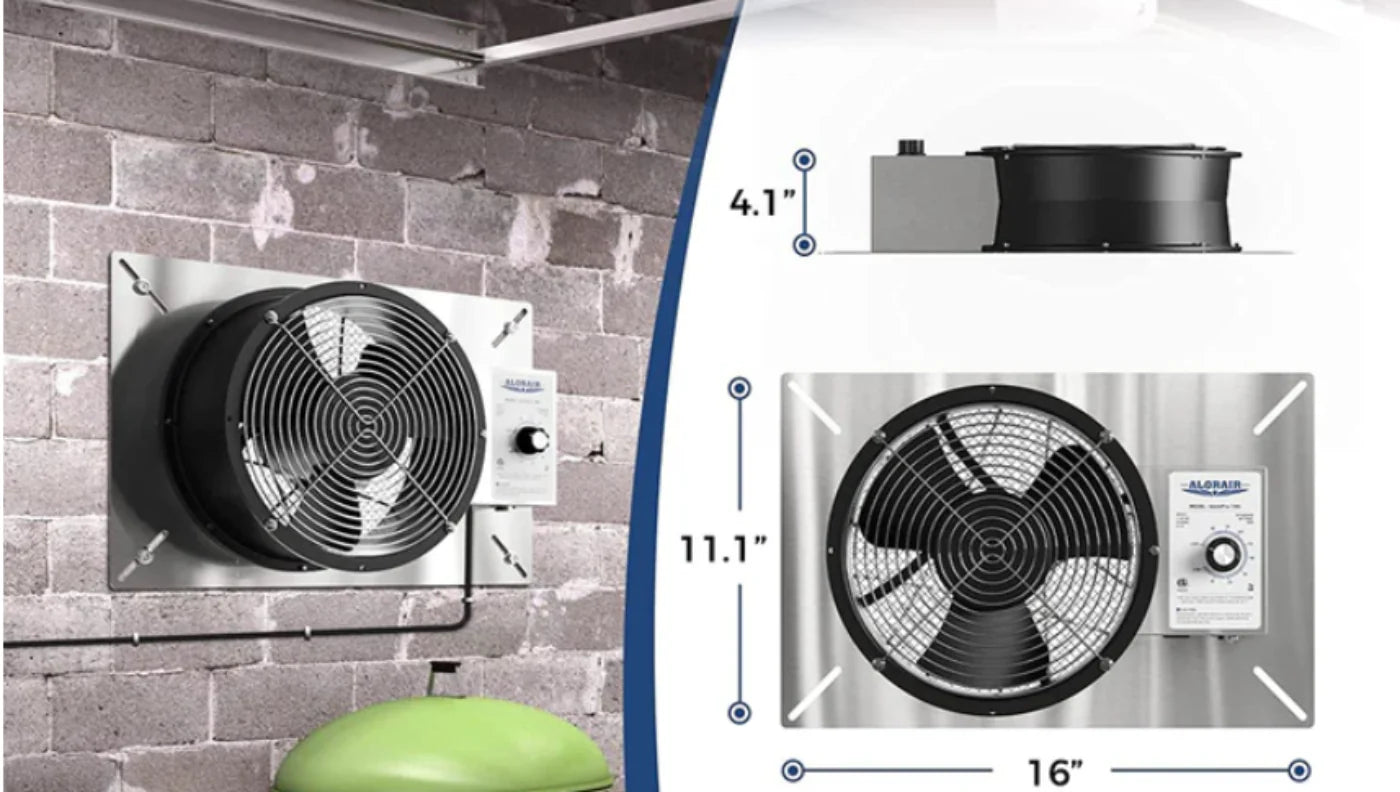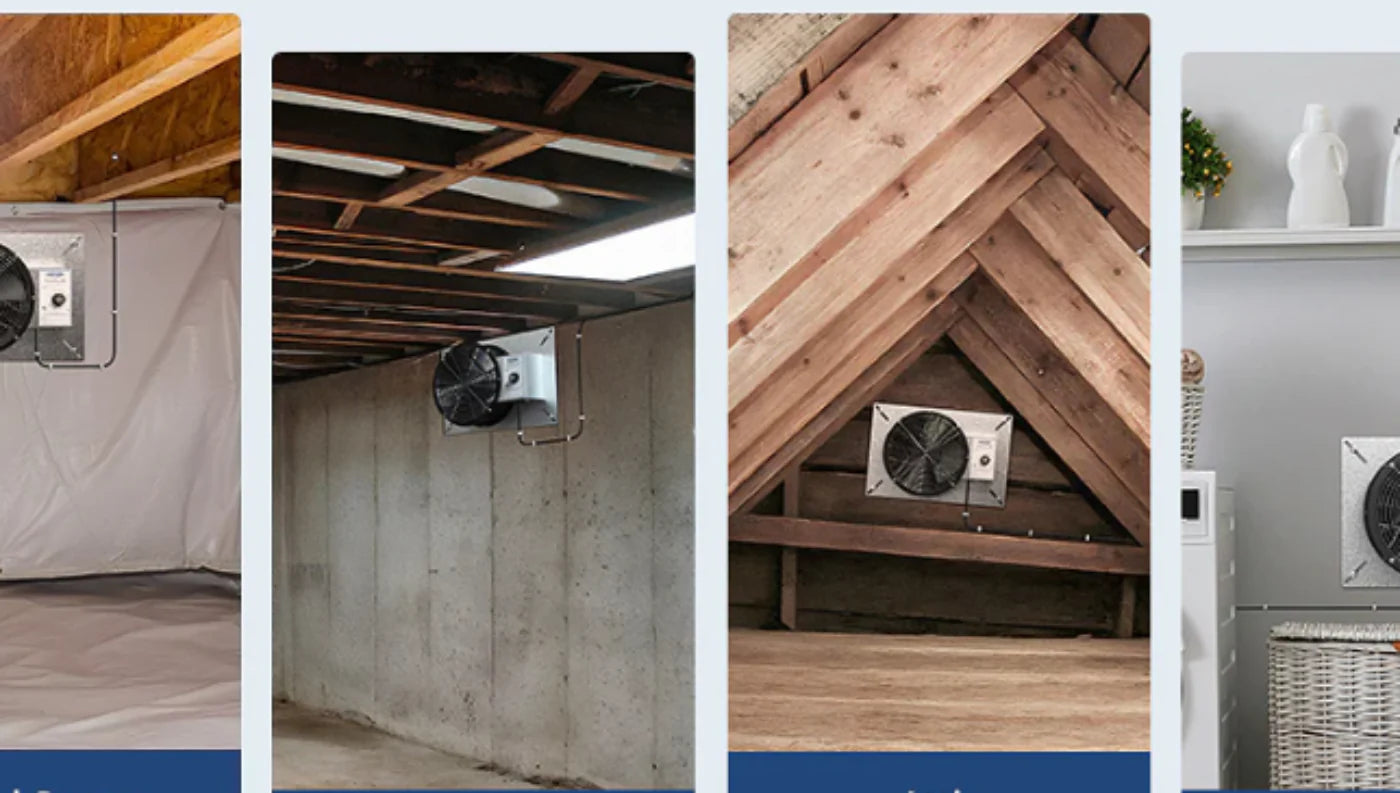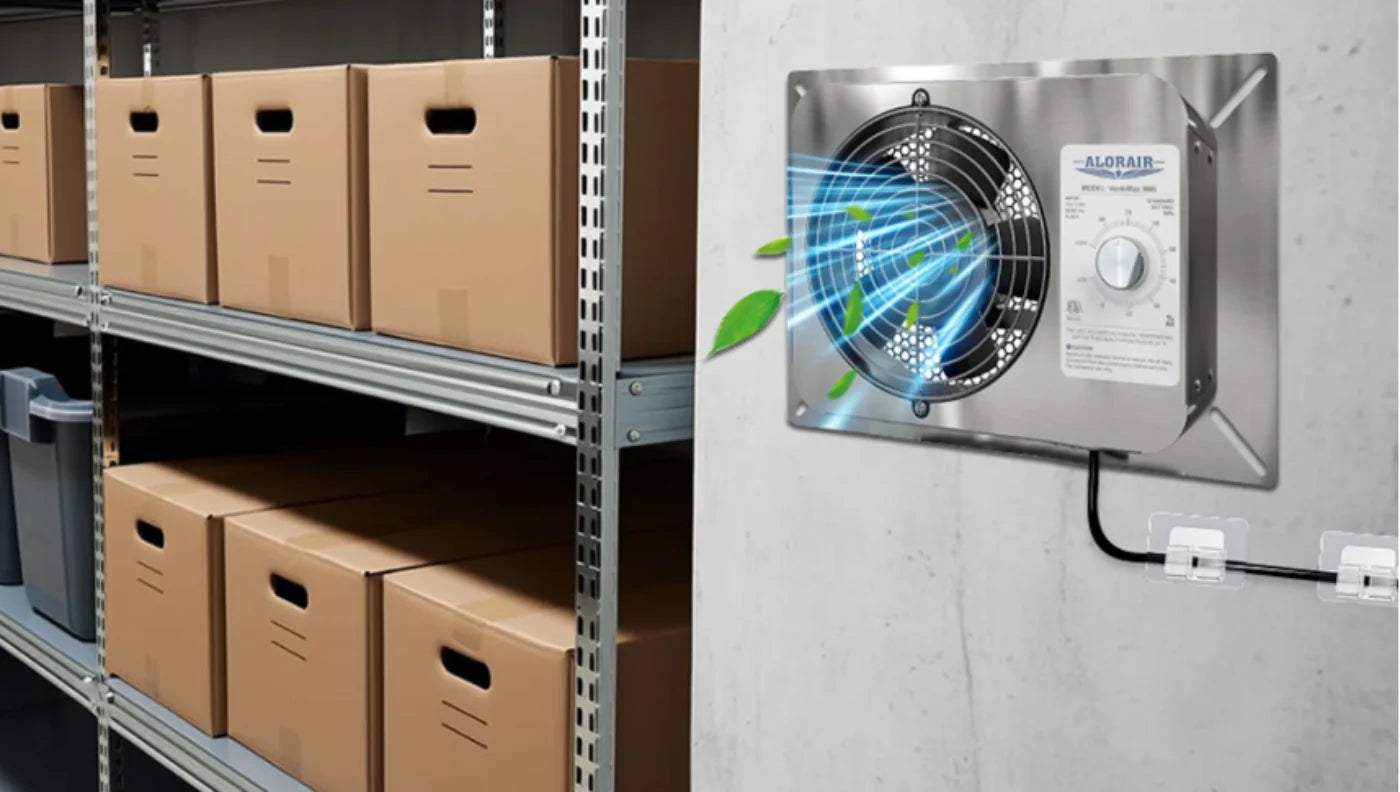Many people focus on outdoor pollution. But, the air inside your home can be up to five times more polluted than the outside air. Whether in workplaces or homes, we spend most of our time indoors. The quality of indoor air significantly affects our health and comfort.
When it comes to improving the quality of indoor air, air purifiers and dehumidifiers can be very helpful tools. These devices improve the quality of the indoor air you breathe, making your environment healthier and more comfortable.
These devices might sound similar, but each serves distinct purposes in improving indoor air quality. The air contains both pollutants and water droplets, which can make it not only sticky but also unhealthy. You can use an air purifier, a dehumidifier, or both depending on your indoor conditions.
Let's look at these two devices in detail to determine whether you should use both an air purifier, and a dehumidifier, or if a dehumidifier alone might be sufficient to address your indoor air problems.
When Should You Use an Air Purifier?
You should use an air purifier when you are dealing with issues such as dust mites, pollen, allergies, asthma, smoke, cooking fumes, unpleasant smells, VOCs, and pet dander. Air purifiers remove various airborne particulates that can impact your health and comfort.
An air purifier can be highly beneficial if you live in a polluted area or if you have respiratory conditions like asthma and need to breathe clean air. Besides, such devices can also be very helpful in removing harmful particles such as traces of cleaning products and pesticides. Air purifiers with activated carbon filters can help get rid of unpleasant odors.
While dehumidifiers can effectively reduce moisture in your indoor air, this helps prevent mold growth and musty smells. However, they can’t address airborne contaminants such as pollen and dust mites. Therefore, you should use an air purifier where dehumidifiers aren’t enough to improve indoor air quality.

When Should You Use a Dehumidifier?
You should use a dehumidifier in spaces where the indoor humidity levels remain consistently high. High humidity can be a whole-house problem or specific to certain rooms, such as basements, crawl spaces, and bathrooms. Humid, damp environments are breeding grounds for mildew and mold buildup. If not addressed promptly, high humidity can trigger health issues, such as allergic reactions, and cause damage to goods and property.
Therefore, you should use dehumidifiers in damp and poorly ventilated places to remove excess moisture from the indoor air. There are natural ways to dehumidify your home. Sometimes, just ensuring proper ventilation can help reduce indoor humidity.
Moisture enters your home either from external sources such as rainfall or from indoor activities, such as hot showers, cooking, and watering indoor plants. Minimizing such indoor activities can also alleviate damp conditions. You need a proper dehumidifying system if your indoor conditions are too harsh. For instance, you may need a heavy-duty dehumidifier to address extreme conditions in basements or crawl spaces.
Remember, air purifiers can remove mold spores from the indoor air. However, they aren’t designed to address moisture problems. So, whether you should use an air purifier if you have a dehumidifier depends on your specific conditions. A dehumidifier is enough if you aren’t struggling with airborne pollutants.
Do You Need an Air Purifier If You Have a Dehumidifier?
In some cases, you might have an air purifier if you have a dehumidifier, and in some, you don’t. Both of these devices are designed for different purposes. As we already discussed, air purifiers remove airborne particulates such as pollen, dust mites, mold spores, pet dander, chemicals, and various other contaminants, whereas dehumidifiers mainly address high humidity problems.
For those dealing with both high humidity and air pollution challenges, using both the dehumidifier and air purifier can be beneficial. Below are some specific conditions that help you decide whether a dehumidifier is sufficient or if you need both an air purifier and a dehumidifier.
1. When You May Need Both Machines?
You may need both an air purifier and a dehumidifier when dealing with indoor pollution alongside extreme humidity conditions. You can achieve optimal results using both machines when…
You are living in humid and polluted urban areas: You might need both machines if you are living in a coastal city with extreme air pollutants. Houses in coastal cities such as Miami are usually prone to high humidity challenges. So, most probably you need a dehumidifier as your HVAC system won’t be sufficient to maintain optimal indoor humidity levels. Humid environments are ideal for mold growth. So, mold spores alongside other urban air pollutants such as dust and smoke make your indoor air highly polluted. If this is your case, you need both devices.
You are facing extreme mold or dust problems: You also need both devices when mold buildup and dust mites are persistent problems in your space. Other mold spores and dust may create musty smells. Using a dehumidifier, you can prevent mold growth, and an air purifier removes mold spores and dust mites from your indoor air. This makes your indoor environment healthy and comfortable. Remember, you need a true HEPA filter air purifier to address the most challenging airborne particles like dust mites.
Some specific rooms are prone to both humidity and poor air quality: Some rooms, such as basements, crawl spaces, and laundry rooms, are usually exposed to both high humidity and poor air quality. In such cases, you need a large dehumidifier to reduce moisture and an air purifier to neutralize the musty odor from your indoor air and improve the overall air quality.

2. When Only a Dehumidifier Be Sufficient?
In certain situations, using a dehumidifier may be sufficient to maintain a healthy and comfortable indoor environment if the indoor air quality is already good. So, only a dehumidifier will be sufficient when:
Poor air quality isn’t your primary concern: You don’t need an air purifier if poor indoor air quality isn’t your primary concern. Homes with sufficient airflow usually don’t face poor air quality issues. And if there are no other sources of air pollution, such as pets, smoke, or heavy traffic, a dehumidifying system alone can effectively control humidity issues.
High humidity is the main issue: Rooms such as bathrooms, where high humidity rather than airborne pollutants is the primary concern. You can use a portable dehumidifier to remove the excessive moisture. In such cases, only dehumidification works well, and you do not need a proper air purification system.
Your home is new and well-insulated: Newly designed homes are mostly well-insulated and have modern HVAC systems already installed, making them less prone to poor air quality concerns. In such cases, the existing HVAC system can purify indoor air, so you don’t need a separate air purifier.
Read this blog to find out how to keep your basement dry without using a dehumidifier.
Conclusion
Whether you need an air purifier when you already have a dehumidifier depends on your specific indoor conditions. You might need an air purifying system if you are dealing with poor air quality challenges such as dust, pollen, mold spores, and other airborne pollutants.
A dehumidifier may be sufficient when high humidity is your primary concern. For instance, newly designed, well-insulated homes usually don’t need separate air purifying units. In such cases, when the indoor air is fairly clean, just using a dehumidifier can ensure healthy and comfortable indoor environments.
Aren’t you sure which option you should choose? You can explore our website and read blogs written by experts or contact our support right now. At Aloraircrawlspace, we’ll help you find the best solution for your indoor air problems.




